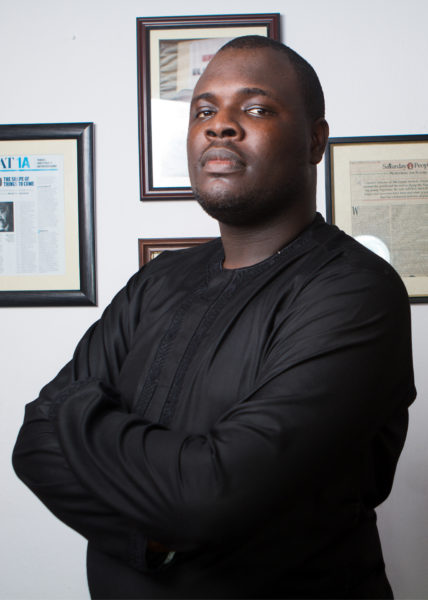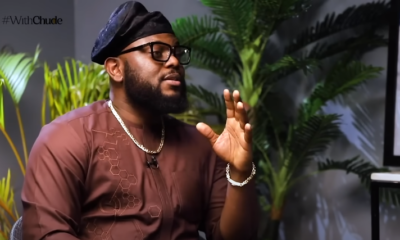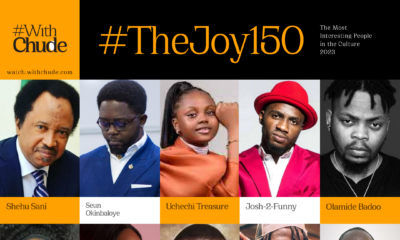Career
BN Trailblazers & Tastemakers: Inspiring Change Through Youth Empowerment & Education, Chude Jideonwo is the Face of the Turning Point Generation
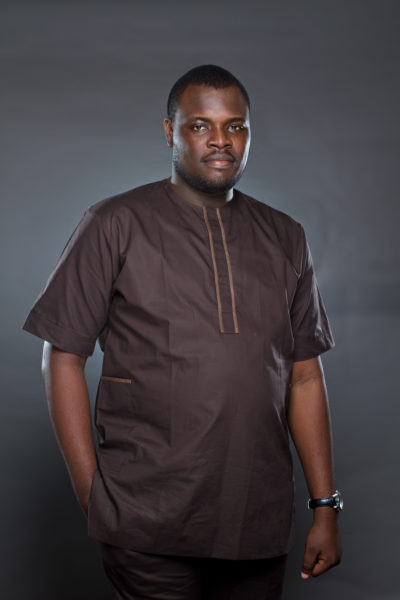 Chude Jideonwo is one half of The Future Project team. He is young, hardworking, and very passionate about Nigeria. Chude is the only son of his parents, and he grew up in Lagos. In his early teens, he worked with some of Nigeria’s leading media people: Levi Ajunoma, Agatha Amata and Funmi Iyanda. Cutting his teeth in the media, he went on to University of Lagos to study law. Chude describes himself as ‘Shy’, but that personality trait has not stopped him from being the formidable force he is today. Through his work with The Future Project, he has been completely focused on youth development, youth empowerment and positive change for the coming generation. His new book ‘Are We The Turning Point Generation‘ has been published by Kachifo Ltd. and is scheduled for release this weekend. BellaNaija, chats with Chude, the man who wears many hats for the cause of Nigeria.
Chude Jideonwo is one half of The Future Project team. He is young, hardworking, and very passionate about Nigeria. Chude is the only son of his parents, and he grew up in Lagos. In his early teens, he worked with some of Nigeria’s leading media people: Levi Ajunoma, Agatha Amata and Funmi Iyanda. Cutting his teeth in the media, he went on to University of Lagos to study law. Chude describes himself as ‘Shy’, but that personality trait has not stopped him from being the formidable force he is today. Through his work with The Future Project, he has been completely focused on youth development, youth empowerment and positive change for the coming generation. His new book ‘Are We The Turning Point Generation‘ has been published by Kachifo Ltd. and is scheduled for release this weekend. BellaNaija, chats with Chude, the man who wears many hats for the cause of Nigeria.
What motivated you to start the Future Project?
You would read newspapers and all you would hear about young people was prostitution in Italy or queuing for visas to escape. We had met other young Nigerians, who in spite of the harsh country were building businesses, driving change projects and opening sectors. We asked ourselves: 1. How do we tell this story and change the narrative, so people focus on just how good young people were doing? 2. How do we use these ones as inspiration for other young people?
We were media professionals and so automatically our tool for development was the media. If you remember 2003, 2004 things were so different – people had lost hope massively. We began to drive pride in self and in country through viral campaigns like ‘I represent Naija’ and ‘I am the future’. It was just exciting to be leading this freshness, this newness. Ah, it was a dreary time. There was no hope, and no faith. We knew this wasn’t a useful state of affairs and someone had to do something, no matter how small. And so we asked ourselves, if not us, then who? If not now, then when?
Tell us what the Future Project is about? What do you hope to achieve with it?
The Future Project is focused on leadership and enterprise support, with an emphasis on youth. I said recently that so many people have been talking so much about “Africa Rising”. Without knowing the statistics at the time, we began to preach this message before it caught on – that much is possible by young people despite the difficulties and lack of opportunities. The Future Project has two major goals – to inspire a new generation of leaders, using role models as case studies for other young people, and then engaging young people to build their capacity to get employable or to build businesses. Africans now brag a lot about our demographic surplus and how 70% of our population is under 70, but it’s easy to miss the fact that this is also very dangerous as well. What we have is a crisis in the making because what you have is a situation where large percentage of those people are not employed, and many are simply not employable. We are passionate about closing that gap as much as we can.
What would you say is the highest point of your work on The Future Project?
There are so many high points. Sometimes, I think I am in a dream. I remember when we were 17, 18 and 19 starting this with no office and no bank account and zero funding, perching at Efere Ozako’s Yaba office (God keep his soul). To think we would be partnering with the AU, or we would have visited over 26 states, over 15 African countries, reaching millions of young people? To be able to build such a respected-for-impact platform that we have this year partnered with the British Council, the US Government, the Nigerian Federal Government, The Tony Elumely Foundation and others? It’s almost surreal. But most importantly, my daily high point is like Anambra where I went to speak last week, and a young person walked up to me and said after listening to one of our winners at a Town Hall meeting, she started a new business that is now worth at least 25 million. I felt so proud. I had touched another life! Not just theoretically – but in actual outcome. We hear these stories every other day – you can’t imagine how fulfilled that makes us.
What’s the most challenging part of having run the Future Project thus far?
1. Money 2. Money 3. Money. Because the organisation is largely successful, people think it has always made a load of money. Not true. Our company Red Media is in fact the largest sponsor of TFP. It’s the funds that we made from working for Celtel, Google, Nigerian Idol and others that we have largely ploughed into driving our passion. Support has become much more solvable in the past few years, but compared to the depth of our vision including our Youth Opportunity Centre across 24 states, we feel so frustrated because there is so much to be done. So much. But we are glad for what we have been able to.
You founded the EnoughisEnough Project. Please tell us what you hoped to achieve with that?
EnoughisEnough is one of my proudest accomplishments, I have to say. Still I couldn’t have founded it without the equal partners who listened to my pitch and came in and pulled their weight from Day 1 saying I abandoned it. So many people seem to think that (laughs). But EnoughisEnough really came in a moment of frustration and complete spontaneity. The former President Umar Musa Yar’Adua had just passed and there was so much chaos and confusion in the country over his death. I was overcome with so much – shame, confusion with where we were headed, and just a general helplessness at the fact that it seemed nothing was being said or done. I decided, and my partner Adebola immediately caught it, that we couldn’t just be satisfied with doing the awards and these seminars, impactful as they were. We were neither a political organisation nor were we anti-government, but we decided we could do something else to make change happen. It became clear that young people couldn’t just keep quiet. And we simply wanted to create a platform for our voices to be heard. That, I would say, was the major goal. Although, as I should have suspected knowing us, it couldn’t have ended up as a one-off. It has grown far beyond that now. I am so proud of all of us who made our voices heard at a time when it truly mattered . It has led to #OccupyNigeria and the youth involvement, #RSVP, #OurNASS. It restored my faith in our capacity to do the hard work when it is required as young people.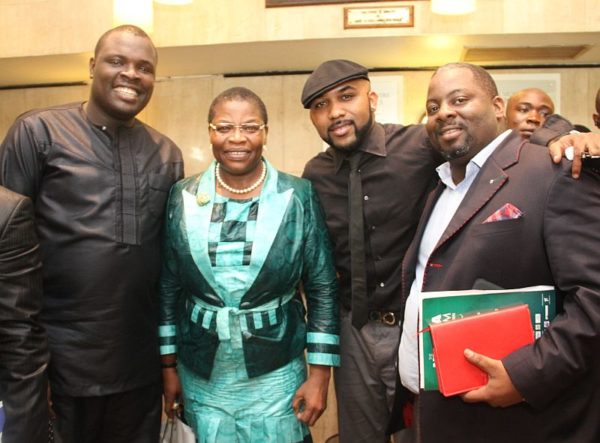
In the early days of the Future Project and other subsidiaries, you were very critical of the government – more like a “voice of the people” type of organization. It appears the focus has varied. Can you give us some insight into this?
That’s not true actually. TFP has always been resolutely non-partisan and we always decided that as individuals we would speak up and speak out when it is necessary, but TFP has always avoided being anti-government because its mandate requires that it works with all stakeholders. We realized early that it is important to keep focused. It’s interesting you ask that right after the ‘EnoughisEnough’ question. When we formed EnoughisEnough, my partner, Adebola, and I, called together a group of like-minded friends and formed something of a board, as the organization was never supposed to be about just me, or us. The organization was formed, as I said, in a moment of passion and frustration, but then with the initial success, we saw that it had the potential to become bigger than any of our individual passions, so we moved to make it formal. There was one meeting in particular at Planet One in Maryland where the other members said I had to run it, but I said no.
My hands were simply full with YNaija, Y! Magazine, The Future Awards Africa, and other projects. It wasn’t as though I was running away from ‘work’ as I’m the sort of weird human being who performs better particularly when my hands are full, but I didn’t believe I was in the right mental space to take it on. And as I always say, people have to be able to distinguish between their passions and their destinies. I have one race to run, and that race is media; this is why I say I am an entrepreneur and not an activist. Both lives are really not suited for mutual co-existence. I knew running EiE would take my focus away from my real journey and life passion so I decided to step away from it, while still remaining an active part. In a sense this mirrors what the situation is with the organization ‘speaking out against the government’.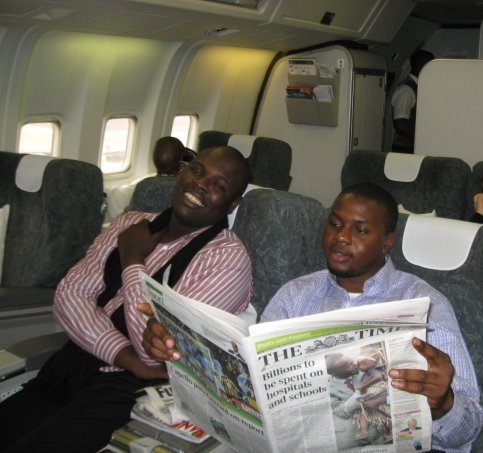
Some people have stated that some of these social media activists are merely looking to be vocal enough to be heard by the government with hopes of being bribed or coerced into government – What are your thoughts on this?
On the one hand it is true that different people get into different things for different reasons – which, to be honest, is perfectly fine. We can’t expect everyone to do things the way we would, after all. On the other hand, it is quite worrying that the public seems to meet anyone who raises their voices for something they believe in, with suspicion. I find it unsettling that the word ‘activist’ has now become a word used in the derogatory fashion, as though it is something to be ashamed of. I personally like to say I am not an activist, but for reasons of accuracy and consistency, not because I believe there is somehow anything wrong with it. Are there people who are activists to join government? Yes. Are there people who are journalists to join government? Yes. People in business angling to join government? Yes. I have been offered positions in government and I said ‘no’ – quietly, no fuss, no drama. Nothing is wrong with government if it achieves its purposes without corruption. I wont judge my friends who do that. I made a choice not to at this time, because my passions lie elsewhere. The important thing is: ‘are there some people who are working selflessly and at great sacrifice with integrity, and are they achieving their outcomes?’ Yes. There are many of them, and I am so grateful to them and proud of everyone who has picked a spot to dig.
Please share your words on marble with our readers
In my office, there is a huge photo of the greatest woman in the world (apart from my mum) and my personal hero, Hillary Clinton after she conceded the democratic primaries 5 years ago, and on it is written the words that I live my life by: ‘Bloom where you are planted’.
What do you do when you’re not working?
I work very hard so people don’t believe when I say I am a deeply unserious person – So I love to do anything that makes me laugh. Then I am a movie addict, and I am television addict. I love hanging out in open spaces, my friends know having drinks or lunch by a poolside, or facing a lake or the ocean or a beach, or looking at the stars is the best way to catch me. Church is a big part of me. I love God like no man’s business, and have lost the capacity to feel shy about announcing it. I pray – the times I spend talking to God are the most important times of my entire life.
What’s the one thing you would not leave home without
I’m going to cheat and say my bag – which would have my iPad, my phones, my laptop, and internet modems.
What would you like to be remembered for if you’re no more
From when I was young, I have always desired these: that I be remembered for being a good person who was fun to be with. I have updated that now – I want to build people. When I look at my peers or team members or mentees whose lives I have touched and who have become leaders or successes at some level. that’s what I want to be remembered for. The other day I finished at a TPH praise concert and a young woman who attended an event I spoke at rushed to me, and I decided to drive her to Apapa because it was almost midnight and she couldn’t find transport. On the way she was so eager to share her life’s issues especially with finding a job. I spent the next 30 or so minutes pouring my heart, giving her some tough-love advice. Two weeks ago she sends me an SMS and says because of that advice, she has been in a job for two months or so. By God, that’s what I want to be remembered for.
Are you a jeans or khaki kind of guy?
Can I just go with an Adire top and well sewn pants? (laughs)
You’re single and very well known… do you sometimes get scared that women see you as “The Chude” and not for who you are?
I’m going to have to respond with a question again – two questions actually.
Who says I’m single?
There is a “The Chude”? (laughs)
If you won a hundred million dollars in the lottery today, what are the first 5 things you would do
Buy land in Ikorodu and build our Youth Opportunity Centre in Lagos
Buy land in Ogwashi-Ukwu and build our Youth Opportunity Centre in Delta
Buy land in Bonny and build our Youth Opportunitu Centre in Rivers
Buy land in Jos, and build our Youth Opportunity Centrer in Plateau
Buy land in Yola, and build our Youth Opportunity Centre in Adamawa
Buy land in Ikenne, and build….
What’s your favourite item in the whole wide world?
I would say my mother, but being the Igbo woman she is, she might take offence at being referred to as an ‘item’ (laughs). There is so much I want to say about that woman. But all I will say – again – is thank you, mummy.
Special thanks to Chude for speaking to us and we wish him all the best in his future endeavours.

